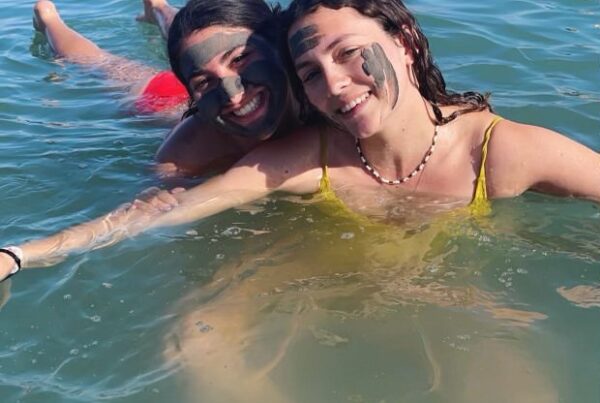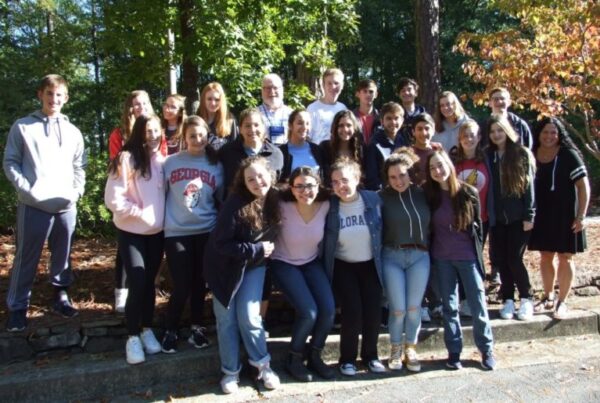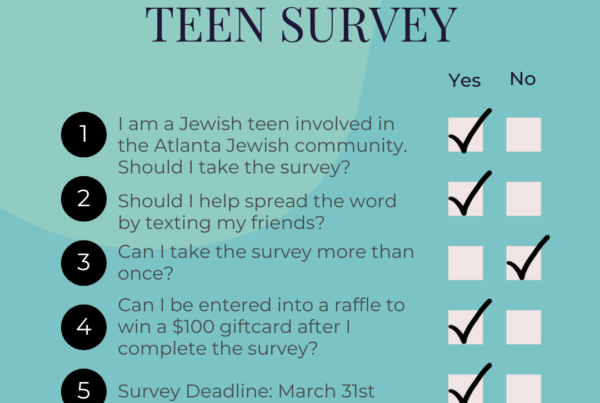First published on eJewish Philanthropy ›
Twenty-four teens gathered at the Emory University campus in Atlanta from Oct. 26 to 28 for the second Teen Israel Leadership Institute hosted by the Center for Israel Education and the Emory Institute for the Study of Modern Israel.
The weekend featured a mix of activities, discussions and educational games designed to expand students’ knowledge and understanding of Israel and Zionism and to help them plan learning programs back home.
The institute is part of a national CIE initiative to provide more impactful education on Israel to Jewish teens. A grant from the Legacy Heritage Fund is supporting the program.
The institute organizers therefore brought in Kelly Cohen, the director of JumpSpark, the Atlanta Jewish teen initiative, who led a highly interactive session in which teens had to develop a program goal and use a variety of variables to craft a program outline.
“We also put more emphasis on making sessions more engaging and interactive overall,” CIE Vice President Rich Walter said. “As a result, we added a Knesset simulation activity, a session on Israeli hip-hop music and several experiential games.”
For example, the students formed a human timeline representing Zionist and Israeli events from 1881 (the start of the First Aliyah) to 2007 (Hamas’ takeover of Gaza), picked out the eight prime ministers among 16 head shots, identified the Israeli locations of cat photos, and played a version of the Food Network show “Chopped” in which six teams made hummus that had to include such ingredients as wheat crackers, hot sauce and orange Gatorade.
“I have a lot of Jewish friends in NFTY. Every one of them supports Israel, but I don’t think a lot of them know about Israel too much,” said 11th-grader Eli Roberts of Marietta, Ga. “I feel like I’m going to be able to teach them and also talk to my friends in Israel.”
CIE and ISMI emphasize context and documentary evidence in the study of Israel’s issues and history but do not advocate specific views, allowing students to reach their own conclusions. To that end, CIE President Ken Stein led two sessions to help the teens own Israel’s story and confront the Israeli-Arab conflict, and the teens got to choose among two or more programs several times during the weekend. The program included the Abrahamic Reunion, a team of Jewish, Muslim, Christian and Druze leaders, and explored different perspectives on Israel’s independence in 1948 and diverse elements in modern Israeli culture.
Although Israel was the focus of the weekend, it also addressed anti-Semitism, a topic that took on unexpected immediacy when the massacre occurred at Pittsburgh’s Tree of Life * Or L’Simcha synagogue while the teens were worshiping and studying at Emory’s Marcus Hillel Center.
“It’s just a reminder that there’s always people who are not going to like us, who are not going to like people who are different from them,” Walter said during a brief discussion after Shabbat. “We’ve been living in a time period where it seems like there’s a lot of extreme views on all sides of the political spectrum, and we need to take things we hear very seriously.”
Noa Libchaber, an 11th-grader from New York, said she was amazed when the high-schoolers joined more than 100 Emory students at Hillel for Friday dinner and services. “Seeing that beautiful unification and then the next day hearing about Pittsburgh, it just made me feel really lucky to be a part of a religion that comes together with so much strength and power.”





